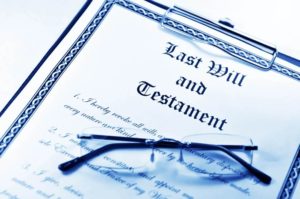
Although most people acknowledge that they must have a will, many are unaware as to what a will is or how it benefits.
A Will is a very personal and crucial document that lays out all of your final wishes (property, assets, and possessions) as a written statement. When you pass away, your will is brought to a court, where the judge and your family members are informed of the contents of your will.
It’s a legal document that lays up how you want your assets, properties, and business wealth split among your family members. The court is required to ensure that assets are distributed in the way that you choose.
Thus it is a necessity to learn about will planning’ and ‘planning a will’ to be completely at peace after you rest in peace.
What Does It Include?
A will permits you to name the people who will inherit your business and wealth when you pass away.
- A will lays down your wishes as to how your assets should be dispersed after your demise, providing instructions for any personal property you may have.
- If you don’t have a will, you won’t be able to choose who gets your wealth, and the country you live in will decide how it’s distributed.
- Once in three years, you should revise your will to make sure it’s updated and still reflects your goals for the future.
Mostly everyone puts off preparing a will. Perhaps it’s because we don’t like to be reminded of our death in such a palpable way. Presumably, we see the procedure as a surrender of our property’s possession. Whatever the reason for deferring the preparation of a will, many individuals are unaware that doing so really prevents what they dread.
A will, in fact, is the most significant document you ever make since it permits you to choose who will inherit your assets when you die.
What If There’s No Will?
Without a will, the court determines how your wealth will be divided among your heirs based on government rules. This is known as dying intestate, and the settlement process that follows doesn’t always produce the best outcomes you want for your family. You may avoid this by having paperwork prepared that represents your preferences.
You must have a will no matter how old or sick you are. Without the will, your family and close ones will have to suffer in a courthouse nightmare.
Who Is Eligible To Read The Will Before The Death?
Until you die, your will is your personal property. Only the executor, whom you chose at the time of making your will, is permitted to read your will after your death.
An executor is a person that the testator authorizes to read his or her will before they die.
A few countries allow making “holographic” wills that don’t require a witnesses’ signature. Homemade wills, on the other hand, can only be used if you don’t have time to write a professional will since they are more easily challenged after your demise.








